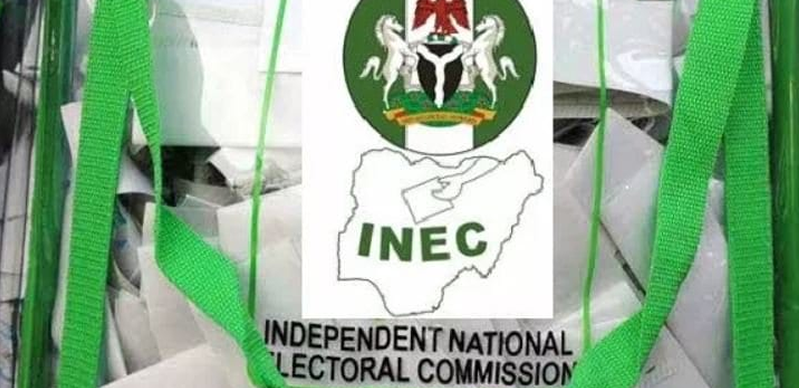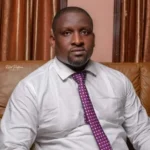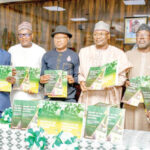The Independent National Electoral Commission (INEC) has warned the 18 registered political parties fielding candidates for the 2023 general elections to desist from any form of abusive words or hate speeches capable of hampering the success of the elections.
The Chairman of the commission, Prof. Mahmood Yakubu, gave the warning on Monday in Lagos at the ongoing two-day media capacity building workshop on the commission’s progress, innovations, preparations for the 2023 general elections and critical issues in the Electoral Act 2022.
- BREAKING: Grid crashes to zero megawatts, 7th time in 2022
- AAI petitions EFCC, wants SDGs’ contracts probed
The event was organised by the INEC, European Union (EU) and DAI.
The warning was coming ahead of Wednesday’s formal commencement of campaign activities by the parties.
Prof. Yakubu represented by the National Commissioner and Chairman, Information and Voter Education Committee of INEC, Festus Okoye, specifically urged all the registered parties to critically study and pay attention to the provisions of the Constitution, Electoral Act, Police Act and Public Order Act for proper and peaceful conduct of political campaigns, rallies and processions.
He also charged the media on equal coverage and visibility to all political parties.
“A political campaign or slogan shall not be tainted with abusive language directly or indirectly likely to injure religious, ethnic, tribal or sectional feelings. Abusive, intemperate, slanderous or base language or innuendoes designed or likely to provoke violent reactions or emotions shall not be employed or used in political campaigns.
“Let me also remind the media of their constitutional and legal obligations. State apparatus including the media shall not be employed to the advantage or disadvantage of any political party or candidate at any election. In other words, equal coverage and visibility shall be allotted to all political parties by all public print and electronic media organisations.
“The same applies in equal measure to privately owned media organisations subject to payment of appropriate fees,” Yakubu said.
The INEC boss said that the commission had entered a critical phase in the electoral process, as it had undertaken eight out of the 14 items on the Calendar and Schedule of Activities for the 2023 General Election.
He said, “On 20th September 2022, the commission released the final list of Candidates standing nominated for national elections (presidential and vice-presidential candidates, Senatorial and House of Representative Candidates).
“On 4th October 2022, the Commission will release the final list of candidates standing nominated in relation to state elections (governorship, deputy governorship and state assemblies). On 28th September 2022 presidential and National Assembly campaigns will start while that of governorship and state assembly candidates will start on 12th October 2022. The commission will continue to adhere to set timelines in carrying out its activities.”
On his part, the representative of the European Union Support Democratic Governance (EU-SDG)/DAI, Denis Mutabazi, said the workshop will avail the commission the opportunity to unveil its strategies to ensure a free, fair, and credible 2023 elections, the progress made to date, and the key milestones and challenges that remain.
He said, “The event is a crucial demonstration of INEC’s strong commitment to transparency, and in ensuring that the public is and remains well informed about INEC’s stewardship of the electoral process.”
Also, Chairman of the INEC Press Corps, Mr. Segun Ojumu, noted that the story and indeed the history of the 2023 general election will be mostly written by journalists amongst others.
“This in the same breadth presents a challenge and an opportunity. A challenge because we have never had an election quite like the one which is at the heart of this Workshop- both in terms of scale, legal framework, and technology.
“We would like the Commission to respond even quicker to issues as they come up in the weeks and months ahead. A lot of fake news, misinformation, and disinformation have found their way to the media space. INEC must be on top of its game and be in charge of the narrative,” Ojumu said.
In his welcome address, INEC Lagos State Resident Electoral Commissioner (REC), Mr. Olusegun Agbaje, noted that the media has always been involved in politics of Nigeria and Section 22 of the 1999 Constitution spells out what constitutes the obligation of the mass media which among others is to uphold the responsibility and accountability of the government to the people.
According to him, elections are great events in the lives of Nigerians and that it is so for different reasons depending on religion, ethnicity, personal and group ambitions and geography.
“Within the context of elections for the purpose of this workshop three parties are to be identified: the electorate (voters), the contestants (politicians) and the umpire (INEC), situating the roles of media professionals to ensure that the three parties in an election play their respective roles in a manner that will guarantee credible, transparent, free, fair and violence-free elections acceptable to the parties has become very imperative when current happenings in the political landscape is juxtaposed with past experience,” he said.
Also speaking, Mr. Rotimi Oyekanmi, the Chief Press Secretary to the INEC Chairman, Prof. Mahmood Yakubu, said that since the conclusion of the 2019 general elections, INEC had embarked on internal restructuring and several innovations aimed at improving its services and the electoral process.
“It (INEC) has engaged and continues to interact with critical stakeholders, including the judiciary and the National Assembly, on the need for a paradigm shift in the electoral system. These efforts produced some positive results, including the replacement of the old Electoral Act 2010 with a new Electoral Act 2022.
“The workshop’s main objective is to broaden the participants’ knowledge about the commission’s processes and procedures, innovations, critical aspects of the new Electoral Act 2022 and preparations for the 2023 General Election. Ultimately, the outcome will equip them with the comprehension that they need to report more accurately and robustly on the commission’s Strategic Plan 2022-2026, the Election Project Plan, Regulations and Guidelines for the Conduct of Elections (2022) and adequately propagate its voter education strategy for the 2023 polls.

 Join Daily Trust WhatsApp Community For Quick Access To News and Happenings Around You.
Join Daily Trust WhatsApp Community For Quick Access To News and Happenings Around You.


